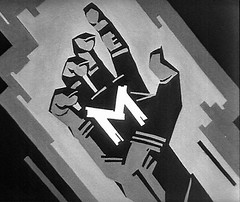last night i watched "The exorcism of Emily Rose". these days, i feel like i could go on watching movies forever, cause being at the cinema allows me to think about a lot of things and feel somehow protected while doing it, sheltered somewhere far from the madding crowd. anyway, leaving aside my thoughts of agony :)), some details about the movie.
Scott Derrickson's movie is more or less based on the true story of a German young girl, Anneliese Michel, who was believed to be possessed by a demon and consequently subjected to several exorcisms by Fathers Ernst Alt and Arnold Renz, later accused of negligent manslaughter. The whole story of the controversial 'Klingenberg Case' can be read here or here. This story is important, since it can be considered another interesting episode in the conflict between Church and Law. and who's right after all? if the state is right, then the poor girl was the victim of overreacting old sick practices comning from the Church or from some deranged priests, who overestimated a medical condition perfectly curable thorugh the wonders of science. if the Church is right, then Anneliese was the victim of a demonic possession, whose memory and family were stained by modern conventionalism and justice, by the assumption that nothing lies beyond facts and science.
coming back to the movie, i must admit i found it rather disturbing. i was thinking once again that i truly believe ignorance to be people's greatest sin, greatest error, greatest mistake. i like this quote from Bruno Jasienski: "Do not fear your enemies. The worst they can do is kill you. Do not fear friends. At worst, they may betray you. Fear those who do not care; they neither kill nor betray, but betrayal and murder exists because of their silent consent." i think people would gain so much more if they considered possibilities, as the people in the jury are invited in the movie. if they didn't reduce everything to facts, cause facts only are capable to grant guarantees. the funny thing is that my experience taught me to respect and consider possibilities and to accept that the absurd is the most probable possibility. after all, "There are no foolish questions and no man becomes a fool until he has stopped asking questions." (Charles P. Steinmetz)
Subscribe to:
Post Comments (Atom)


No comments:
Post a Comment